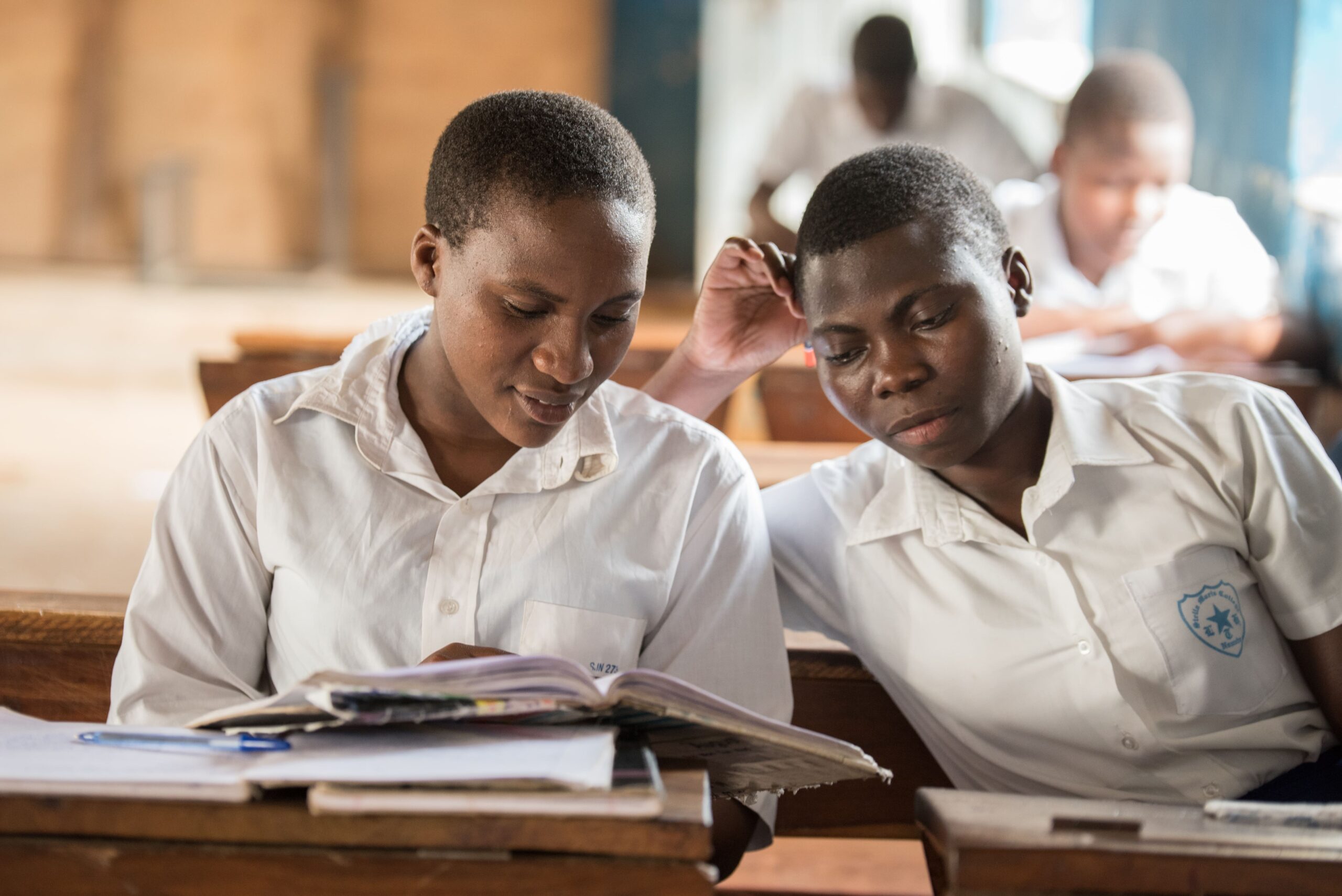Education of girls has always been a challenge in Uganda. In 2015, UNESCO reported that around 16.7 million girls are out of school in Sub-Saharan Africa while 9.3 million of them will never set foot in a classroom. This situation has worsened with the 80-week school closure, a fallout of the Covid-19 pandemic.
After the schools reopened, a new set of challenges emerged in front of the teachers that they were not equipped to handle. One of these was a significant increase in underage pregnancies in girls as young as 11 years old. Teachers had their own biases towards these girls and would often address the situation harshly. No efforts were made to retain them in school post-pregnancy, and they experienced severe humiliation both at school and in the community. The result was that many girls did not return to school.
Olive Nambi, the principal of Busoga High School, supports over 30 secondary schools in Kimuli district in her role as District Education Leader in the STiR Education programme. Previously, she was one of the teachers who would dismiss pregnant students from her classrooms without counseling or providing psychosocial support for the child and her parents.

Olive Nambi
This changed when Olive attended gender responsiveness training conducted by STiR in partnership with the Ministry of Education and Sports. She wanted to attend this training to improve her classroom practices and subsequently learned about gender responsiveness in teaching. This led to an improved understanding of actions that would help improve gender equity in schools.
“The training equipped me with the necessary knowledge and leadership skills to further facilitate this topic at teacher network meetings. I wanted to make sure that this district is a safe space for learning for all adolescent girls.” – Olive Nambi
Feeling inspired by the training, she introduced it to a group of 45 teachers. They discussed actions to support pregnant girls using gender-responsive strategies and psycho-social support. The teachers reflected on examples that provided them a sense of shared purpose for learning and strategies with close linkages to the students, classroom and school setting. However, this positive intention didn’t come without repercussions. During the training, one teacher protested by asking, “Are we promoting teenage pregnancies here?” Olive responded, “We should all understand that a girl’s education matters and those at risk of teenage pregnancy should be supported, protected and welcomed back to school. As teachers, we should identify actions that promote gender responsiveness by avoiding biases and discrimination against pregnant girls. This will bring the change we want to see in education.”
For the first time ever, teachers had the opportunity and space to openly discuss the challenges of teenage pregnancies in their schools. They started discussing approaches that would create equitable learning environments where girls and boys feel seen, heard and supported.
“We have seen a drastic change in teacher mindset”, says Olive, “they are now more aware of the increased risks that girls face at school, and they support the ones who are facing challenges.”
The school has now started a few initiatives as a result of this training. One of them includes a process to protect and support girls from and during unplanned teenage pregnancies. A male and female teacher is assigned to a small group of boys and girls respectively, where they take weekly coaching sessions to spread awareness on this topic while attempting to solve the challenges children face. This has been of tremendous help to the children. When a girl takes a long leave for childbirth, a female teacher keeps in touch with her to ensure she doesn’t drop out. She is then welcomed back to school according to the guidelines. Teachers are now accommodating gender-based needs in regular practice to create a more equitable environment in schools.
STiR is overjoyed to see teachers changing their perceptions while creating a safe environment for both girls and boys to help them learn and thrive. Teachers like Olive Nambi are motivated to improve the situation of Ugandan schools. Many schools under her leadership have adopted this process where teachers are promoting gender responsiveness and supporting girls to continue their education. She says that the learnings from this training have created a space for professional growth, reflections, mindset change and critical consciousness to solve real problems and improve the teaching-learning process.
We are encouraged by the recent developments and look forward to enabling thriving schools that are equitable, safe and inclusive for both girls and boys. Initiatives like this are ensuring that early pregnancy need not mean the end of education for girls. With such measures in place, more and more girls will be able to continue their education. All thanks to the support of changemakers like Olive.


